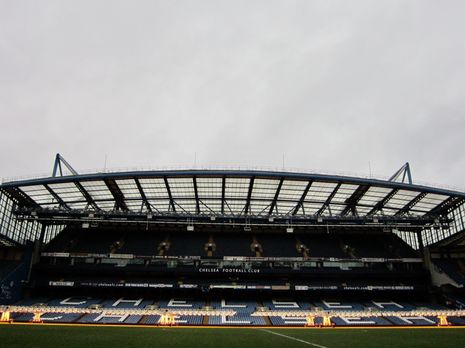The fall of Roman’s empire
Zakariyya Ali examines the demise of Chelsea’s Roman Abramovich, questioning whether the Russian oligarch’s exit will herald serious change of ownership in the Premier League

Thursday 10th March marked the 117th anniversary since the founding of Chelsea Football Club. Champions of the world and victorious in their Premier League fixture of that weekend, the sky seemed all but blue for the West London side.
That was until the recent announcement by Chelsea owner Roman Abramovich that he was putting the club up for sale, followed by the UK government’s decision to freeze the assets of the Russian oligarch for his alleged connections to the Putin regime. This was an astounding twist of fate for the club, as they were soon dealt another blow by their chief kit sponsor, Three, which announced that it was temporarily suspending its sponsorship of the club and would “request the removal of [its] brand from shirts and around the stadium until further notice.”
Chelsea had not won the league for almost fifty years when Abramovich took over in 2003. Since then, the club has won five domestic league titles, two Champions Leagues, five FA Cups, and a range of additional honours. All of which were underwritten by Abramovich’s generous spending and whole-hearted ‘commitment’ to the club. Through £1.5bn worth of loans, Roman built an empire at the heart of West London that has now conquered the world. These were achievements worth boasting about, and reasons for Abramovich’s name to go down in the history books as one of the most successful owners in world football.
“Whether Chelsea will replace an oligarch with a ‘fit and proper’ owner is unclear”
But now the walls are crumbling around an already ageing Stamford Bridge. Roman’s empire could well be collapsing, as the fate of Chelsea looks increasingly grim. Banned from conducting transactions in the UK entirely, Abramovich’s Chelsea have been placed in a precarious position of limbo that can only spell decline. Unable to buy or sell players, offer new contracts, sell any merchandise or tickets, benefit from broadcasting and sponsorship revenue, or even buy fuel, the sky is far from blue for Chelsea.
The club are now unable to offer new deals to players César Azpilicueta, Antonio Rudiger, and Andreas Christensen, all of whom will have no choice but to leave the club once their contracts expire this summer. Some of the players have also expressed concern about the direction of the club, while Chelsea boss Thomas Tuchel has admitted that it’s “hard to focus only on football” during such uncertain times.
Chelsea’s latest set of accounts revealed an income of £153.6m in commercial revenues, the structure of which is confidential. If payments are made on a singular, annual basis then the club will already have received the income. But, if it is staggered throughout each season, there may well be an immediate financial impact that could significantly affect the long-term health of the club. And, without a super-spender owner like Abramovich to continue pumping an endless cash flow into an already indebted club, players, fans, managers, and staff are all blameless to express genuine concern at the future of their institution.
“Chelsea’s future may be riddled with uncertainties, but there is no avoiding the fact that the roots of corruption have spread across the wider Premier League”
Life beyond Roman’s rule will undoubtedly be tough, difficult, and riddled with challenges both on and off the pitch. Yet, whether Chelsea will replace an oligarch with a ‘fit and proper’ owner is unclear. What’s more, a shortlist of four American bids for the club has raised the question as to whether Chelsea will ever get a spendthrift owner like Abramovich again. In fact, a number of Chelsea fans were heard chanting their beloved Abramovich’s name during an away fixture against Norwich, which Boris Johnson described as “completely inappropriate”.
The “Fit and Proper” Test, originally intended to assess the credibility of any individual who takes over a club, will play little to no part in the context of an asset with a valuation of over £3bn, as history has quite clearly proven.
The Glazer Family leveraged millions from banks in order to buy Manchester United back in 2005, and have bled the club’s profits dry ever since. Carson Yeung had a criminal conviction for failing to disclose shareholdings in listed companies when he took over Birmingham City in 2009. Five years later, he was jailed for money laundering, subsequently leaving the club in disarray. Meanwhile, 2007 saw Manchester City taken over by deposed Thai prime minister Thaksin Shinawatra, who presided over a regime notorious for corruption and human rights violations, only to be sold to Sheikh Mansour’s Abu Dhabi United Group. It’s safe to say that Chelsea’s new owners are unlikely to be squeaky clean, much like the romanticised Roman Abramovich who himself used the club to sportswash his own reputation.
Football will continue to be an escape, for fans and dubious owners alike. Even if we are all to come to grips with a post-Abramovich Chelsea, there is great potential for another shady ruler to displace one corrupt empire with another. What Roman’s reign has shown us is that the door is now wide open for a plethora of unscrupulous individuals to scurry in and expand the purview of deceit beyond the tenure of the now deposed Russian oligarch. Chelsea’s future may be riddled with uncertainties, but there is no avoiding the fact that the roots of corruption have spread across the wider Premier League.
Following Newcastle’s recent takeover by Saudi Arabia’s sovereign wealth fund, the Magpies’ co-owner Amanda Staveley stated that she was “really sad” that Abramovich had effectively been stripped of ownership, qualifying her sympathies with the assertion that “we are always going to have geopolitical issues”. The Saudi Arabian Public Investment Fund has itself given legally binding assurances to the Premier League that the Saudi state will have no official control over Newcastle - a guileful way to get around any future sanctions should “geopolitical” issues regarding the Saudi government’s destructive war in Yemen, or its repression of civil liberties, ever catch the UK government’s attention.
In short, nasty owners will linger like a bad smell. Nasty but smarter owners, however, will stick around for a lot longer. After nearly two decades of success, Roman may have reached his fateful end, but the rest of the bad bunch will continue to set up shop.
 News / CUP announces funding scheme for under-represented academics19 December 2025
News / CUP announces funding scheme for under-represented academics19 December 2025 News / SU reluctantly registers controversial women’s soc18 December 2025
News / SU reluctantly registers controversial women’s soc18 December 2025 News / Cambridge welcomes UK rejoining the Erasmus scheme20 December 2025
News / Cambridge welcomes UK rejoining the Erasmus scheme20 December 2025 Features / Should I stay or should I go? Cambridge students and alumni reflect on how their memories stay with them15 December 2025
Features / Should I stay or should I go? Cambridge students and alumni reflect on how their memories stay with them15 December 2025 Film & TV / Timothée Chalamet and the era-fication of film marketing21 December 2025
Film & TV / Timothée Chalamet and the era-fication of film marketing21 December 2025










